Managing a project is one challenging task, especially when you are new to the project management field and don’t have proper knowledge about different project management techniques. From communication to execution, everything aspect of project management plays a significant role. However, which project management methodology is crucial and which one is ineffective, that’s where you have to make the right decision. After analyzing the successful project management techniques of well-known organizations, we selected these 10 best project management techniques and methodologies for you.
Best Project Management Techniques for 2022
1. Waterfall
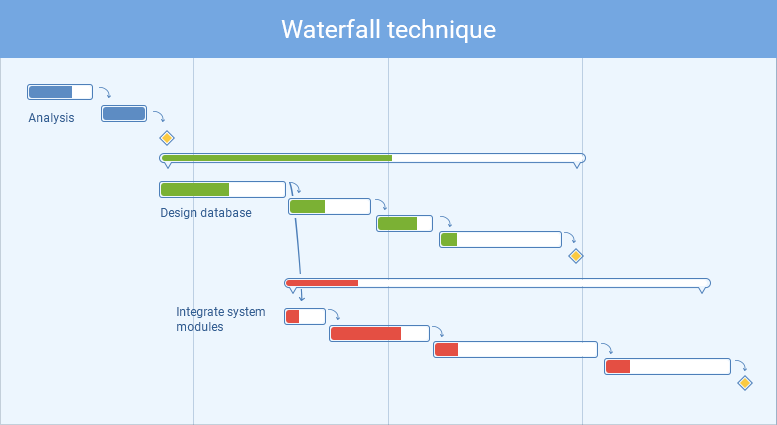
One of the easiest and oldest project management techniques, the waterfall or liner method works by organizing a project into clear, discernable phases, including
- Design
- Requirements
- Verification
- Implementation
- Maintenance
Every project manager is different, and your phrases may look more unique than the above-mentioned methods. However, the concept of a linear timeline still persists. The waterfall project management technique helps to visualize phases of the project from concept to implementation and to realize the big picture of what requirements to be accomplished.
When you are reviewing possible project management systems, remember that the waterfall technique integrates best into project management methodology that can conveniently break out tasks for every project into phases. You can also learn about Time Management Techniques.
2. WBS (Work Breakdown Structure)

Sometimes, a project can be overwhelming at the beginning. It has been observed that successful project managers were confused about where to start and how to divide responsibilities. That’s where work breakdown structure plays a significant role in helping you assess workloads and establish deadlines.
WBS is a hierarchical visualization of deliverables. This project management technique is extremely effective, especially for those managers who like to work with the whole team while assigning tasks. It works best when your entire team involves in providing their relevant input.
When evaluating a project management system to integrate with WBS, make sure that the project manager can use this management technique to hierarchically map essential factors like budget and resources allocation.
3. Gantt Chart
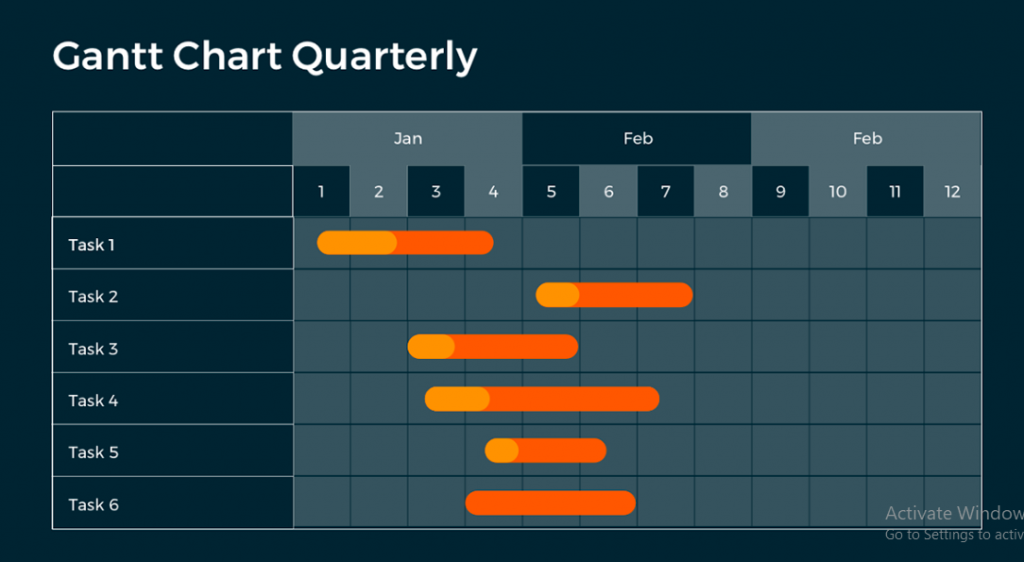
Gantt chart is one of the more in-depth and visual project management methods that pull together every task, milestone, and deadline to effectively illustrate progress. This management technique for the project helps to adjust timeliness based on how your project is processing.
Utilizing the data essential to assemble the chart, a project manager can easily factor in changes to a project and effectively adjust timeless accordingly. This function is invaluable for a manager as he can use dependencies to account for factors that can shorten or lengthen a project timeline.
While choosing a project management technique to integrate properly with your time that frequently uses the Gantt chart method, prioritize a project management system that collects timeline data, including team member workloads, conflicting projects, and individual task time tracking.
4. CPM (Critical Path Method)

One of the most effective project management techniques, the Critical Path method for project management, helps use all the information available about your project and to evaluate its path to completion. Utilizing a WBS or other lists of all tasks, the estimated period for each task, and related dependencies, the CPM allows calculating the longest way to complete the project. This may include the earliest and latest possible time to complete the project, which can be useful information for a project manager to communicate both to their clients and teams.
Suppose the Critical Path Method is a commonly used technique n the project tool belt. In that case, you should integrate with the management method that can either calculate this technique for you based on the collected data or provide all essential data to make the calculations yourself.
5. Kanban

A streamlined project management method to help you visualize workflow throughout a project, Kanban is one of the simplest techniques to manage different projects. Designed to appear like a card on the board, a contributor can use the cards to show levels of progressions and also track steps along the way.
This technique is effective for project managers to emphasize the continuous delivery of tasks without putting an extra burden on their team. Integration of this management technique with your project allows viewing a Kanban for a single project and also taking into account various factors across the projects.
Also, it helps to consider other kanbans to see the broad picture of the task being done by the team. Various project management methodologies are designed with Kanbans due to their effectiveness and simplicity.
6. SWOT

An abbreviation for Strength, weakness, opportunities, and threats, SWOT is a project management technique to identify the strong points in your project. For instance, where are the best possibilities to exploit, threats that should be averted or neutralized, and areas that need improvement?
SWOT mainly focuses on internal and external factors. The prime purpose of analyzing SWOT is to explore the environment of the project, define how the project’s success can be assured, and assess its potential.
This project management technique is used at the beginning of the project. It also helps to evaluate the current status of your project and re-plan and execute it with enhanced efficiency.
7. PERT (Program Evaluation and Review technique)
PERT is a project planning, controlling, and scheduling technique that utilizes a network diagram to depict essential tasks needed to be accomplished. The three main components of this diagram include tasks that need to be accomplished, times at which a task starts and ends, and nodes, which are main points where three or more activities meet.
Rather than considering the beginning and end of the project, this method approach is event-oriented. It needs you to outline the task and then assess the time required to accomplish it.
PERT is useful for non-linear projects but has non-sequential activities. The method also helps to understand how much time a task needs to complete. PERT helps to identify the crucial ways and manage risk using event trees.
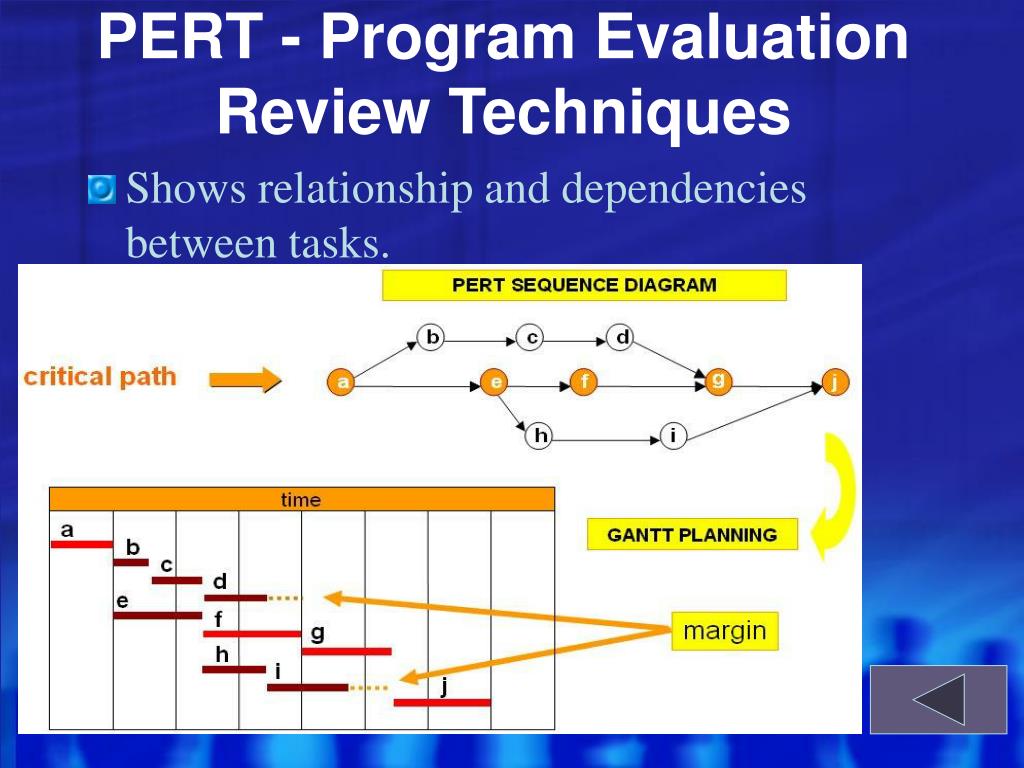
8. Stakeholder Matrix
A person directly or indirectly affected by a project is known as the stakeholder. They may be the project sponsors, senior managers of the organization, third-party vendors, and business partners and can be the end-user.
This technique captures identifying information on prime stakeholders and other roles. The stakeholder matrix helps to determine which person to engage with during the project course and when to do it.
Before starting the project, it is essential to identify a stakeholder who will have an indirect or direct impact on it. This project management practice is divided into four quadrants, including the first quadrant (high power, high interest), the second quadrant (high power, low interest), the third quadrant (low power, low interest), and the fourth quadrant (low power, high interest).
9. Fishbone Diagram
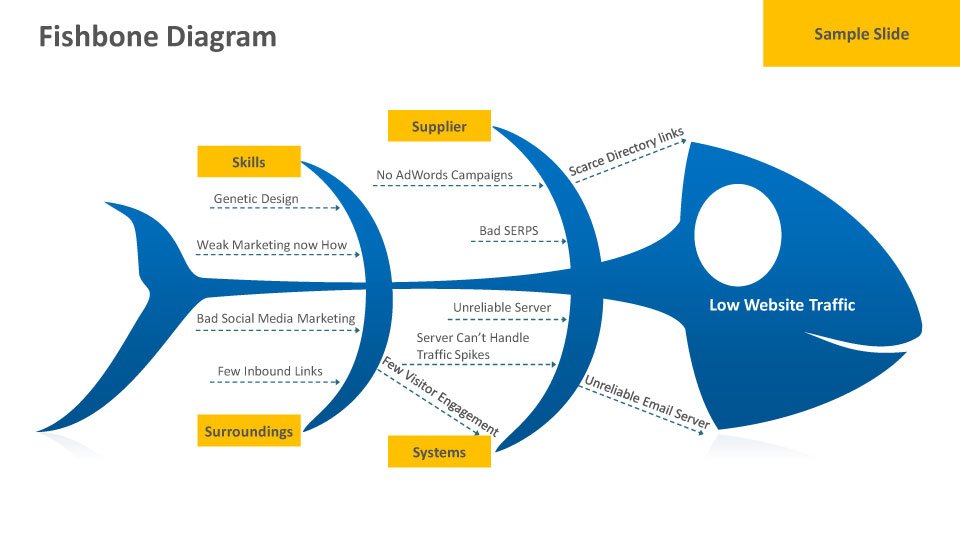
Also known as the Ishikawa diagram, the Fishbone diagram is one of the best problems solving tools utilized in the quality management of the project. The technique encourages brainstorming to identify the basic reason for the particular issue.
The Fishbone diagram is used in industries where targets are set for consistent improvement within the organization. The method is widely used by manufacturers to help them find and eliminate the prime reason for the defects and errors.
For instance, if you are facing continuous product returns over time, it is vital to find the root cause. It will help to find out how to prevent such issues in the future.
10. Decision Tree
This is a decision-making management method to map out the possible consequences of your decision. It is a branch of a tree, with every branch representing a solid consequence. The sub-branches represent the subsequent effects of a decision made at the branches.
A decision tree is used to visualize how one course of action can lead to another and how a decision taken at one stage has a huge impact on future events. This project management technique reveals hidden patterns in your decision-making and allows making better choices by showing the consequences.
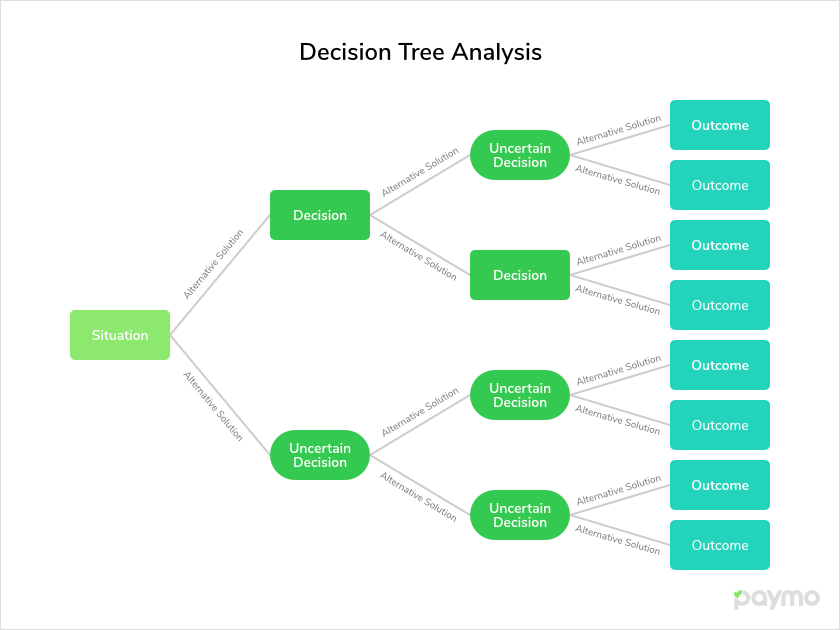
Final Words
Project management plays a significant role in enabling business transformation. It is said that a fool with a plan can defeat a wise with no plan. Therefore, you must be aware of the best project management techniques to achieve your goals. Remember, each project has different needs and targets. That’s where you must know which technique best suit your project.

